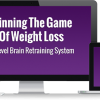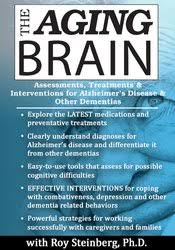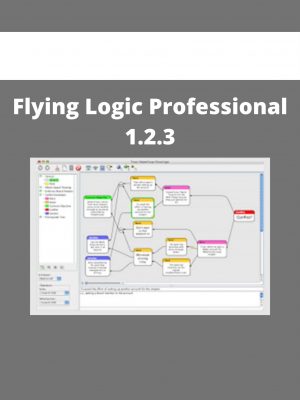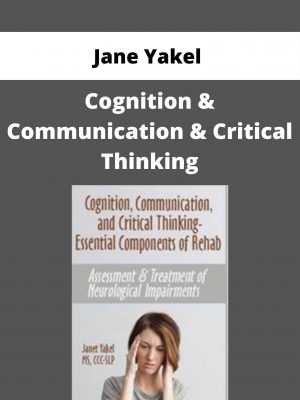Roy D. Steinberg – The Aging Brain, Assessments, Treatments & Interventions for Alzheimer’s Disease & Other Dementias
$200 Original price was: $200.$75Current price is: $75.
Shopping Instructions:
- DISCOUNT 15% : SHOP15
- Product Delivery: Within 1 – 12 hours after purchase.
You will return to your practice better able to participate in interdisciplinary approaches in evaluation and treating Alzheimer’s patients and their caregivers. Don’t miss this ‘one-of-a-kind’ recording.
Roy D. Steinberg – The Aging Brain, Assessments, Treatments & Interventions for Alzheimer’s Disease & Other Dementias
This dynamic recording will help you more effectively understand and intervene with Alzheimer’s disease and other dementias that affect your geriatric patients. In an energetic and uplifting style, Dr. Steinberg will introduce you to a recipe of what works and what doesn’t with and for older adult patients and their care providers. Dr. Steinberg will address the cognitive implications of the aging process in general, its effects on individual patients, and the pathological changes and functional manifestations specific to Alzheimer’s disease and other dementias. Walk away with the tools necessary to differentiate the diagnostic criteria for various types of dementias seen in older adults, including Alzheimer’s disease, Vascular Dementia, Parkinson’s disease, Frontotemporal Dementia and Lewy Body Dementia. You will return to your practice better able to participate in interdisciplinary approaches in evaluation and treating Alzheimer’s patients and their caregivers. Don’t miss this ‘one-of-a-kind’ recording.
Watch Geropsychologist Roy Steinberg, PhD, and walk away with:
- Behavioral interventions to engage patients with dementia to participate in therapy
- In-depth therapeutic approaches and practical strategies to use for ADL re-training and functional mobility for patients with Alzheimer’s and dementia
- Strategies to strengthen and refine report writing/results
- Answers to your patients’ and their families’ concerns and fears related to the aging brain
- Tools to recognize underlying psychological conditions vs. dementia
- Evaluation and development of treatment plans for patients with dementia
- Cognitive interventions to maximize daily functioning
- Analyze the impact of dementia on brain structure and function, and determine the difference between “normal forgetfulness” and cognitive impairment.
- Diagnose dementias, including Alzheimer’s disease, by accurately identifying manifestations of each type and understand how these differences impact prognosis in older adults.
- Articulate differences between the Folstein Mini-Mental Status examination, SLUMS, and MOCA and effectively utilize them as screening measure tools for cognitive impairment and dementia.
- Employ adaptable behavioral interventions that can provide patients with individualized care and promote more effective participation in therapy.
- Investigate the concept of caregiver guilt and its implications for the client, clinicians, and those caring for older adults with dementia.
- Correlate patients’ strengths and limitations to potential therapeutic approaches when developing treatment plans for older adults with dementia.
Would you like to receive Roy D. Steinberg – The Aging Brain, Assessments, Treatments & Interventions for Alzheimer’s Disease & Other Dementias ?
Mental Health Evaluation
- Depression
- Anxiety
- Alcohol Abuse
Cognitive Disorder and “Forgetfulness”
- Transient Cognitive Decline
- Pre-cursor to dementia
- Mild Neuro-Cognitive Disorder
Diagnostics of Dementing Conditions
- Alzheimer’s
- Vascular
- Parkinson’s
- Lewy Body
- Frontotemporal
- Passengers on the bus metaphor
- Reversible Conditions
Cognitive Assessment Tools
- Mini-Mental State Examination
- SLUMS
- Clinical applications
- Administration and scoring
- Objective and subjective interpretation
- Therapy modalities
Differentiate Dementia and Depression
- Clinical indicators of depression and anxiety
- Practical application
Psychopharmacology
- Early and Mid-stage Alzheimer’s – Acetylcholinesterace inhibitors
- Mid and Late-stage Alzheimer’s – Neurotransmitter Glutamate
- Alternate interventions
Behavioral Interventions
- Intervention strategies for depression, poor appetite, verbal and physical combativeness, refusing ADL care
- Strategies for coping mechanisms for the caregiver and clinician
Working with Caregivers at Home
- Caregiver guilt
- Depression
Ethics
- Responsibility to patient
- Reporting abuse
- Power of Attorney
- Documentation
Related products
NLP & Hypnosis
NLP & Hypnosis
NLP & Hypnosis
NLP & Hypnosis
NLP & Hypnosis
NLP & Hypnosis
NLP & Hypnosis












